02:48
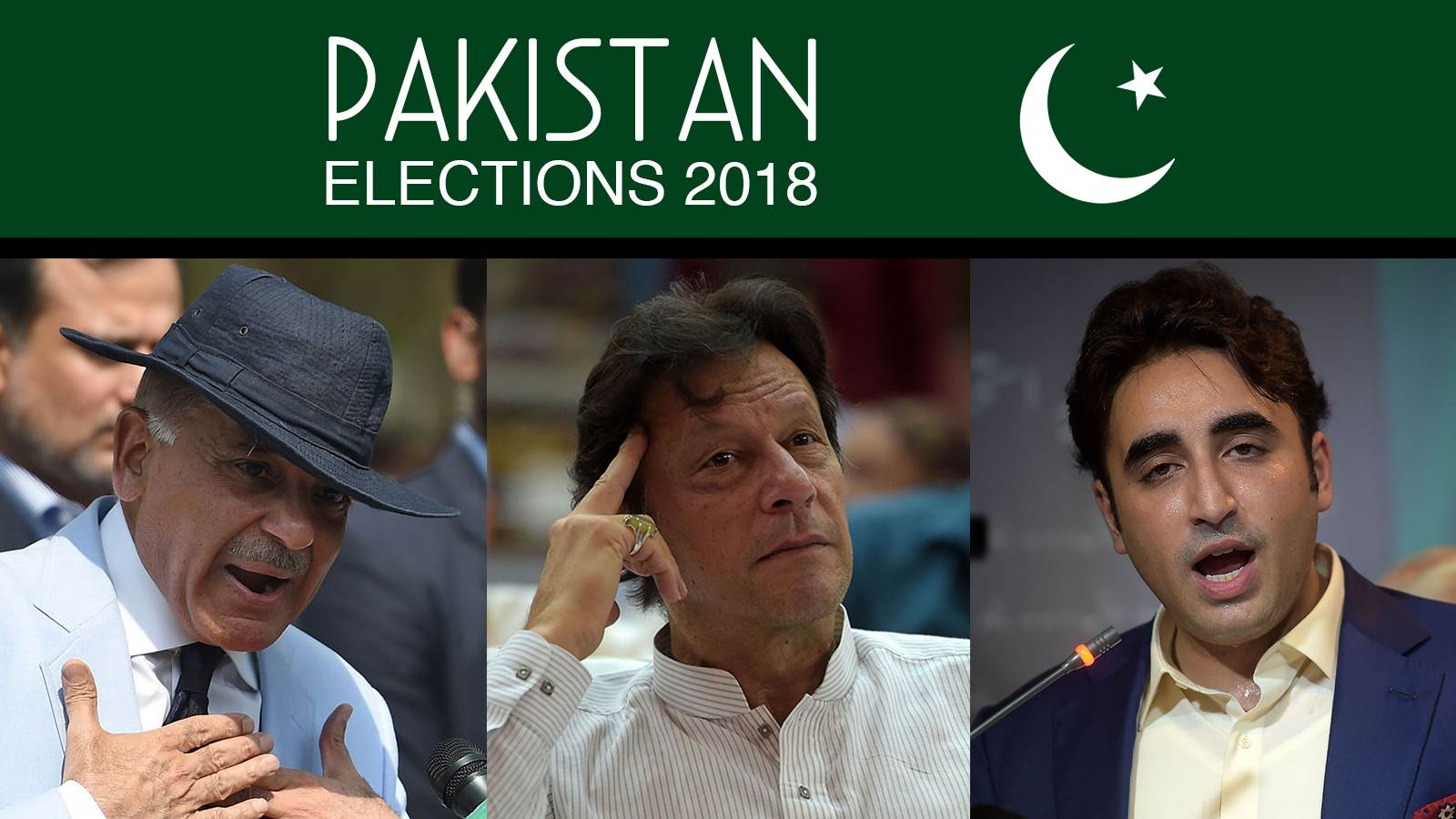
Pakistan's 106 million registered voters will go to the polls on Wednesday to elect a new parliament after a bloody campaign.
The election in this world's sixth most populous country matters: It is a nuclear state, a key developing South Asian country and one of the largest Muslim-majority countries in the world.
This election will mark only the second time that one civilian government has transferred power to another in the nation's 70-year history.
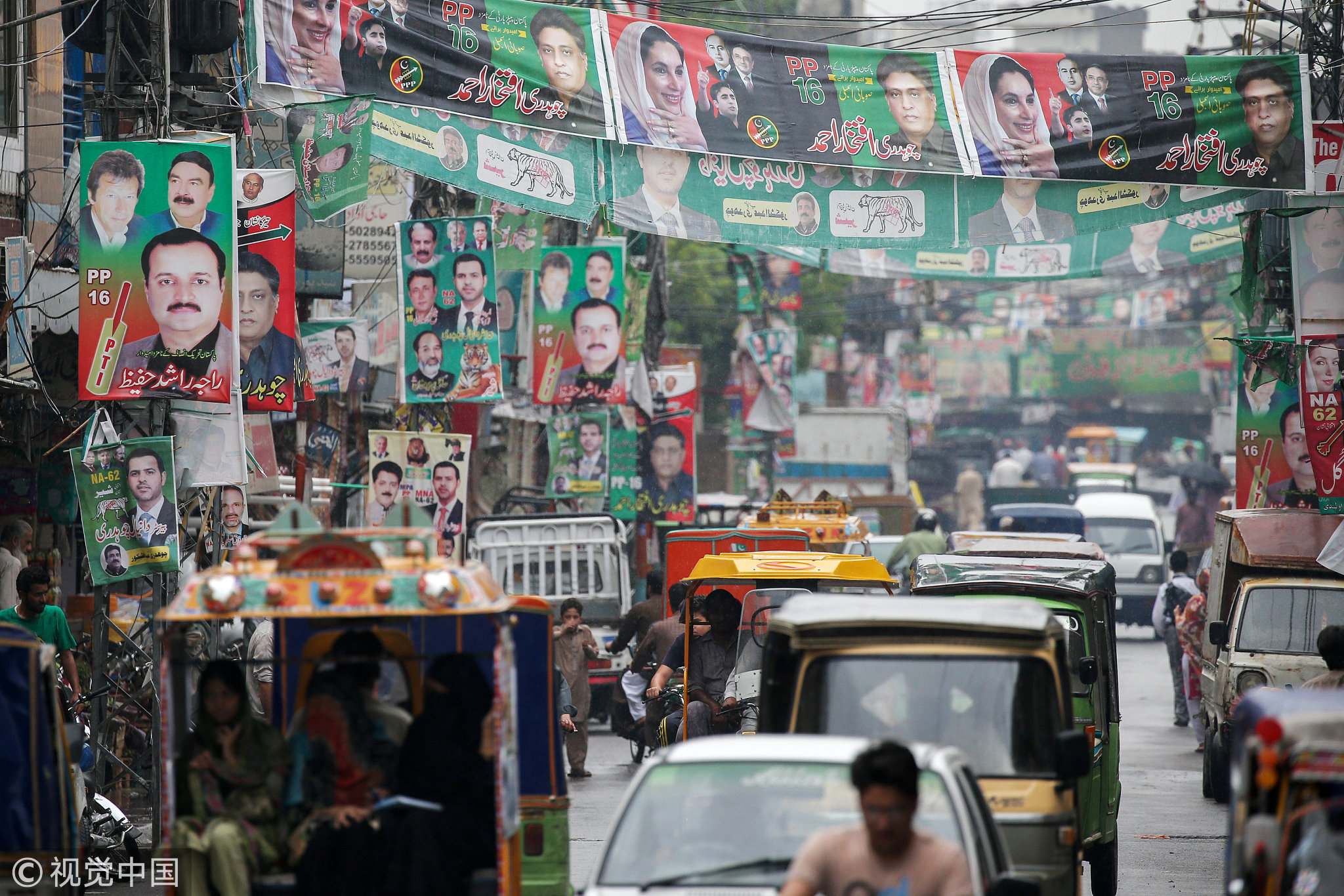
A street is decorated with flags and banner of political parties ahead of general elections in Rawalpindi, Pakistan, July 23, 2018. /VCG Photo
A street is decorated with flags and banner of political parties ahead of general elections in Rawalpindi, Pakistan, July 23, 2018. /VCG Photo
Here is what you need to know about the election.
What is at stake?
Since independence in 1947, Pakistan has toggled between civilian and military rule, and no prime minister has yet served a full five-year term. Nawaz Sharif, who came to power in the 2013 election, was ousted over corruption allegations a year ago.
Experts pointed out this year's campaign has been particularly fraught, which will leave the military with an opportunity to push the former governing party out of the running.
Fears have also mounted over military units' wide-ranging powers during the vote.
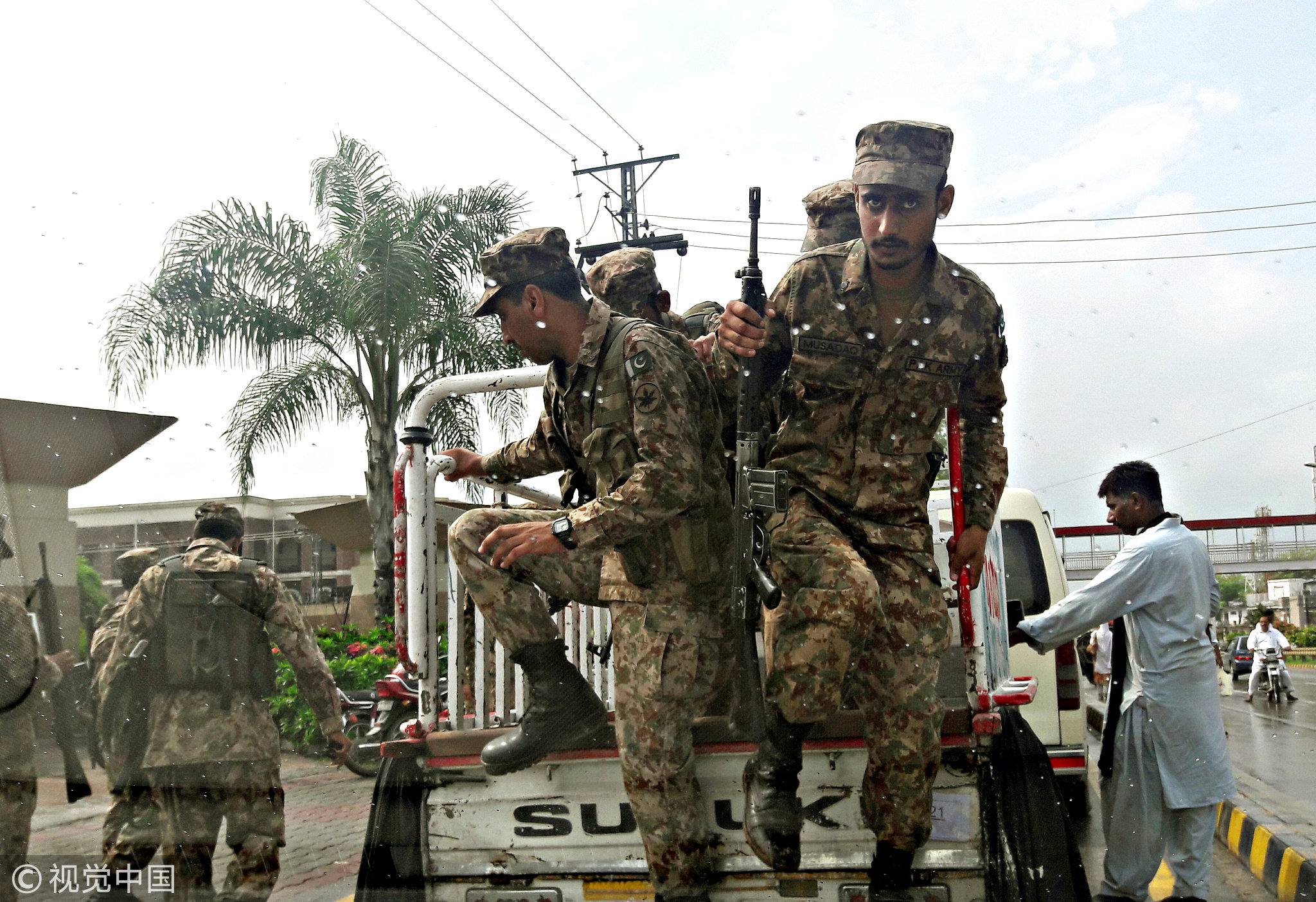
Soldiers arrive to guard at the judicial complex where election material will be distributed ahead of general election in Rawalpindi, Pakistan July 24, 2018. /VCG Photo
Soldiers arrive to guard at the judicial complex where election material will be distributed ahead of general election in Rawalpindi, Pakistan July 24, 2018. /VCG Photo
The Pakistani military will station over 370,000 troops nationwide to ensure the vote goes smoothly, the largest such deployment on an election day in the country's history.
The Election Commission of Pakistan (ECP) later said military officers would also be given magisterial powers, effectively making them judge and jury to punish individuals for illegal acts committed inside polling stations.
Despite the political mess, the country is also struggling with violence, extremism and poverty.
Wedged next to Afghanistan, Pakistan is always at risk of a conflagration with the Taliban or other militant groups. Since July 10, attacks on political party candidates have killed more than 150 people and injured hundreds.
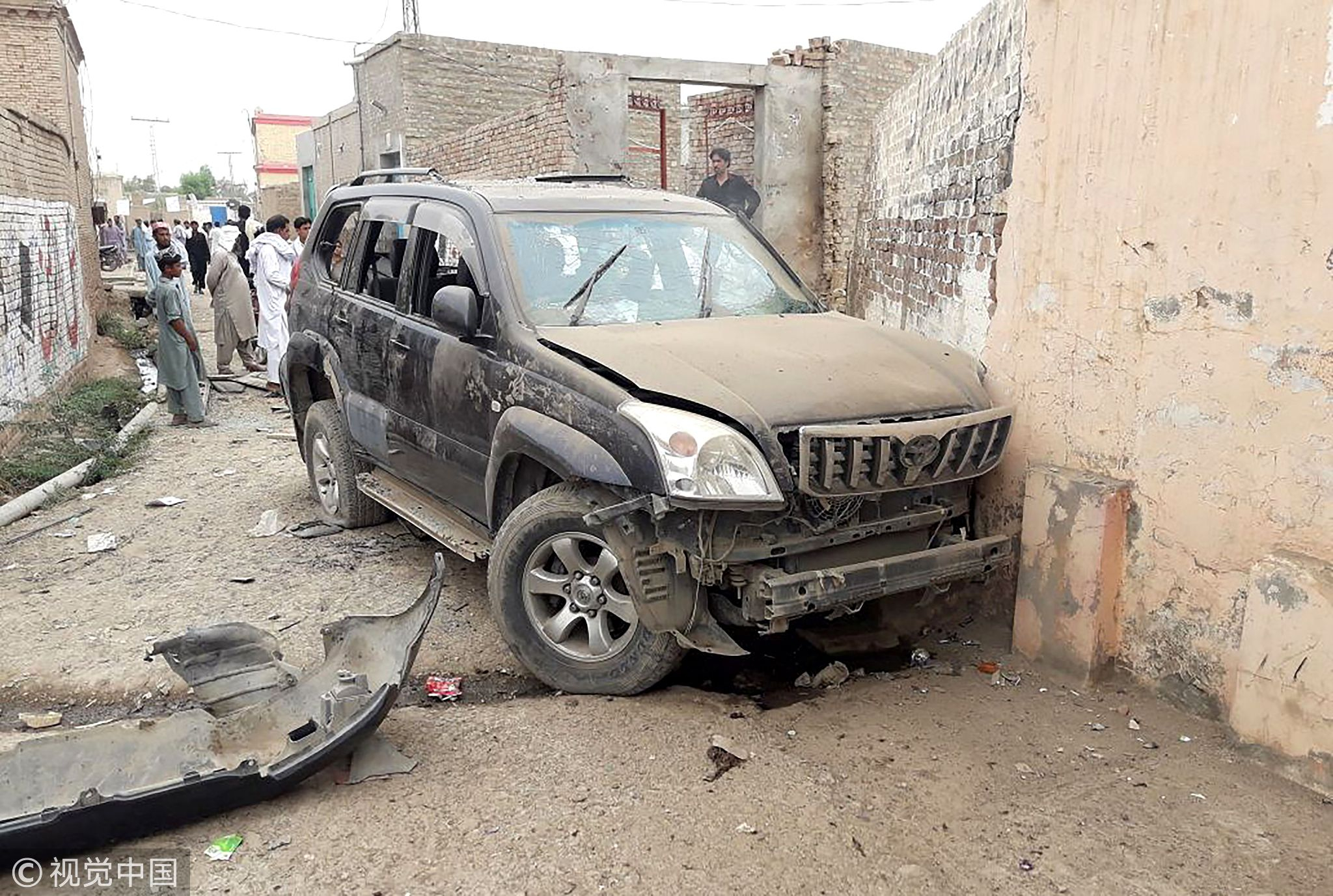
Pakistani people stand beside a car of Ikramullah Gandapur, an election candidate of Tehreek-e-Insaf party, killed in a suicide attack in Dera Ismail Khan, in northwest Pakistan on July 22, 2018. /VCG Photo
Pakistani people stand beside a car of Ikramullah Gandapur, an election candidate of Tehreek-e-Insaf party, killed in a suicide attack in Dera Ismail Khan, in northwest Pakistan on July 22, 2018. /VCG Photo
Thus, more than a third of the population is illiterate and an estimated 17.2 percent of the total population lives below the poverty line.
Who are the key players?
There are 122 parties fielding candidates in the election but the real contest is between three key players: the Pakistan Muslim League-Nawaz (PML-N), the Pakistan Tehreek-e-Insaf (PTI), and the Pakistan People’s party (PPP).
Analysts expect a close race between the PML-N and PTI and the PPP could potentially serve as a junior partner in a coalition if neither PML-N nor PTI wins a majority.
- Nawaz Sharif & Shehbaz Sharif (PML-N)
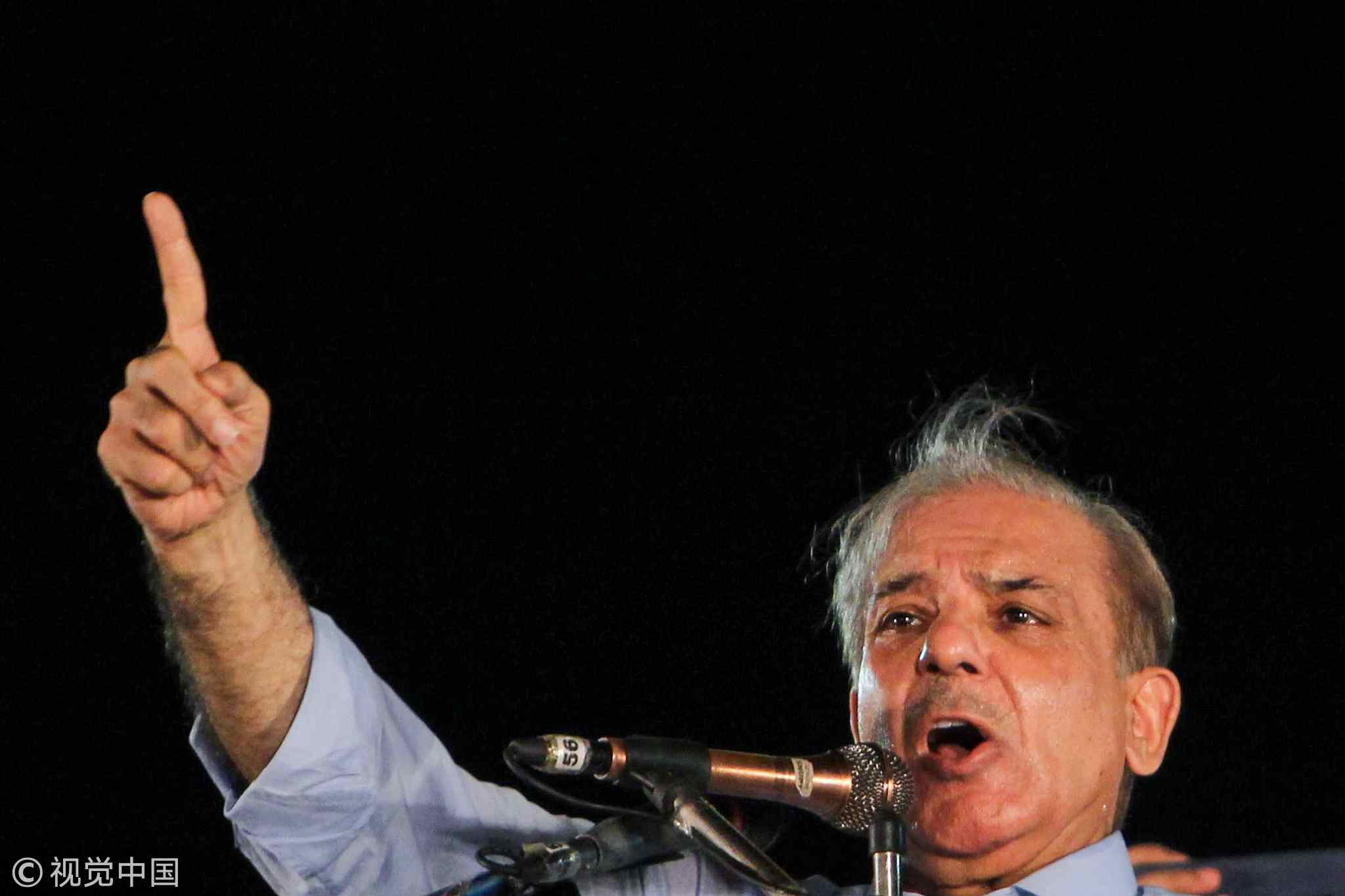
Shahbaz Sharif, head of Pakistan Muslim League-Nawaz (PML-N), gestures and delivers a speech during a campaign meeting ahead of the general election in Multan on July 22, 2018. /VCG Photo
Shahbaz Sharif, head of Pakistan Muslim League-Nawaz (PML-N), gestures and delivers a speech during a campaign meeting ahead of the general election in Multan on July 22, 2018. /VCG Photo
The PML-N party is current led by three time prime minister Nawaz Sharif's younger brother, Shehbaz Sharif.
Nawaz Sharif, 68, was ousted last year after a corruption investigation and is now serving a 10-year prison sentence after dramatically returning from London earlier this month.
Sharif accused that court of making its decisions under military's pressure, although the military have denied this.
The party is focusing on its previous economic success and Shehbaz Sharif was the chief minister of Punjab, the most populous and prosperous province out of country's four provinces.
Current seats: 182
- Imran Khan (PTI)
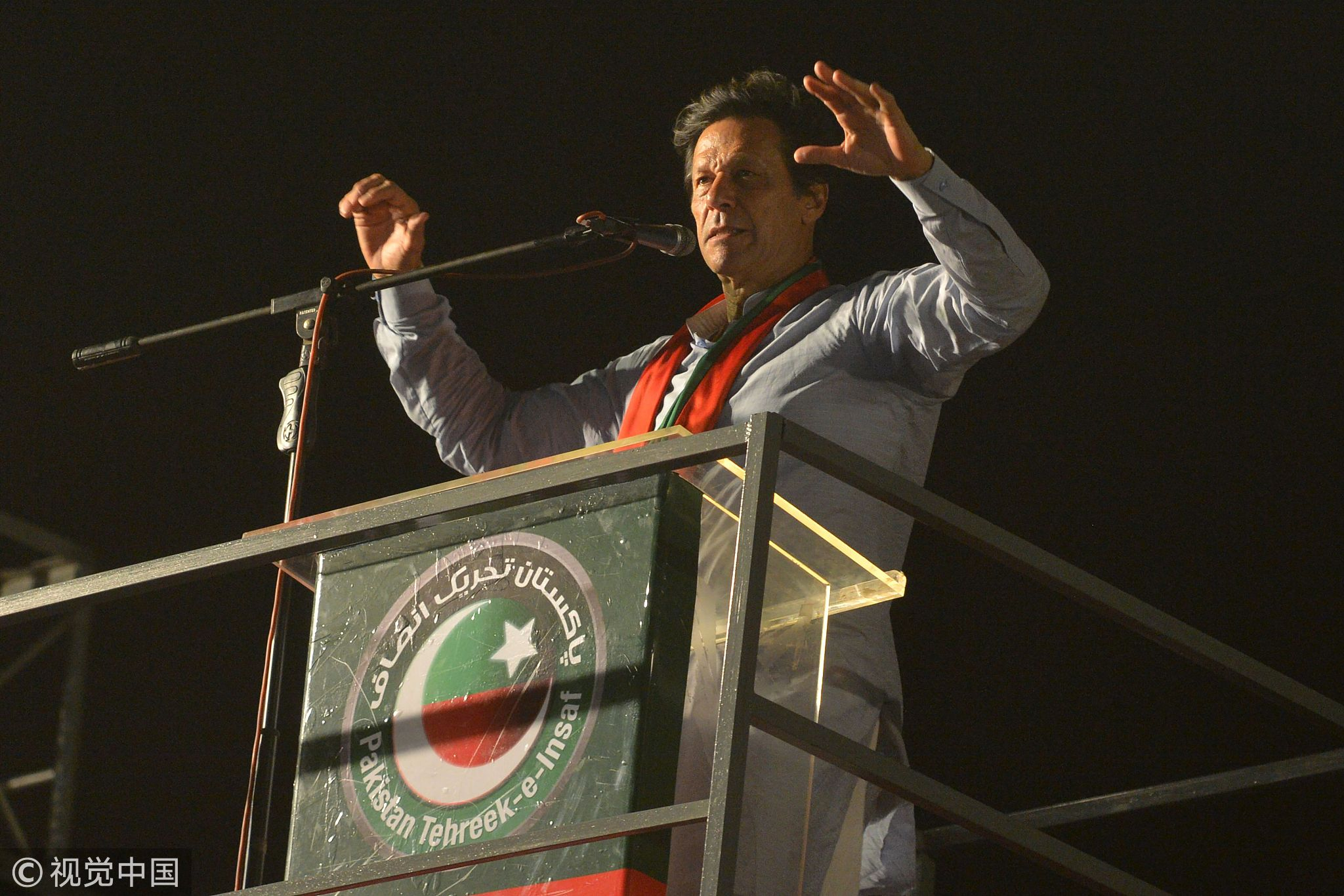
Pakistani cricketer-turned politician Imran Khan speaks to supporters during a campaign rally ahead of the general election in Karachi on July 22, 2018. /VCG Photo
Pakistani cricketer-turned politician Imran Khan speaks to supporters during a campaign rally ahead of the general election in Karachi on July 22, 2018. /VCG Photo
The populist PTI party is led by the Imran Khan. He has had some success at provincial level but has never run a government.
Many observers believe that in this election, the 65-year-old former cricketer is the military's preferred candidate, although he denies any collusion with them.
However, Khan has been accused of both lacking a coherent political philosophy and of sympathizing with extremists.
Current seats: 32
- Bilawal Bhutto Zardari (PPP)
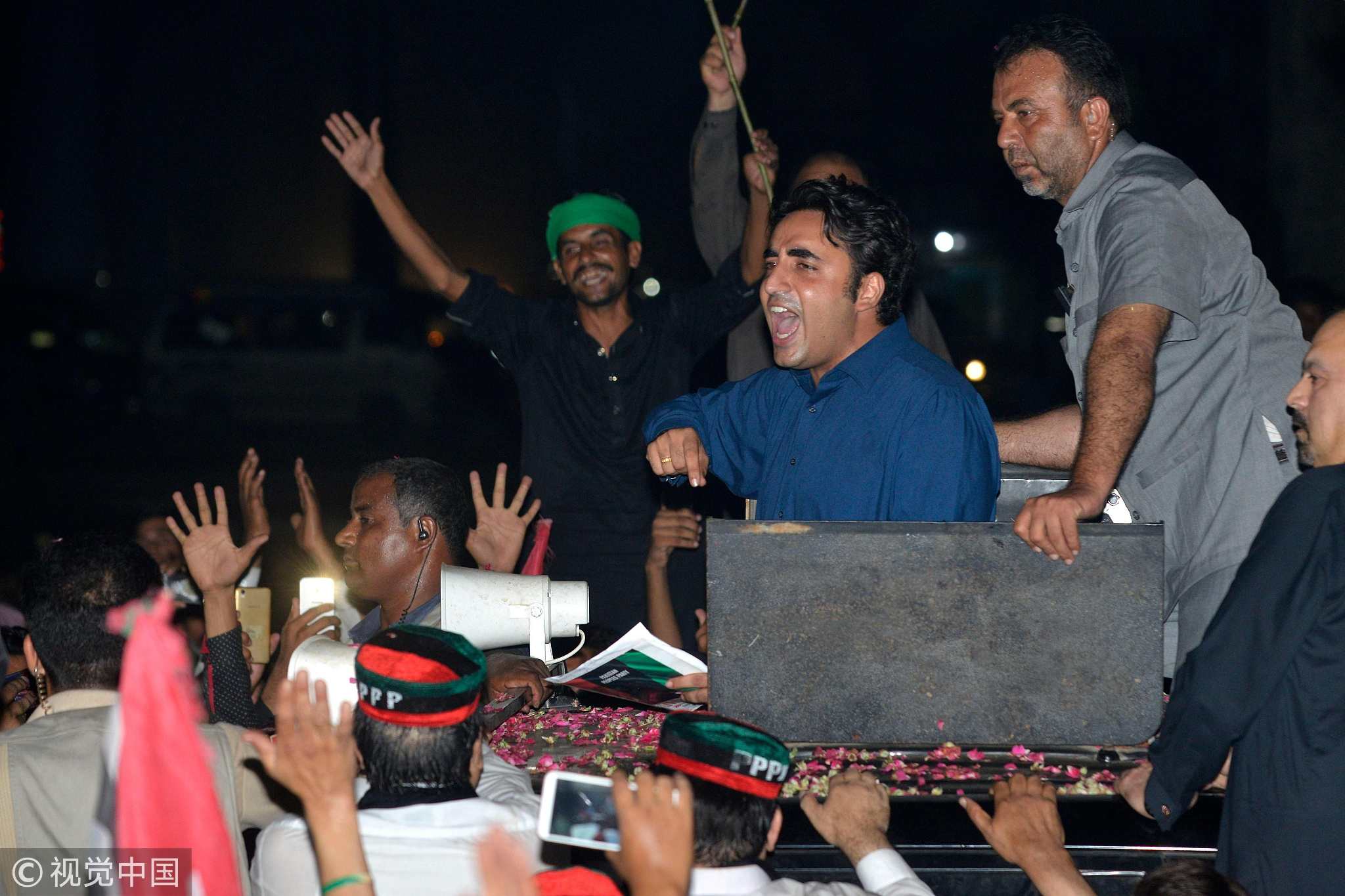
Chairman of the Pakistan People‘s Party (PPP) Bilawal Bhutto Zardari speaks to supporters during an election campaign rally in Lahore on July 19, 2018. /VCG Photo
Chairman of the Pakistan People‘s Party (PPP) Bilawal Bhutto Zardari speaks to supporters during an election campaign rally in Lahore on July 19, 2018. /VCG Photo
The center-left PPP is led by 29-year-old Oxford-educated Bilawal Bhutto Zardari, son of the assassinated former Prime Minister Benazir Bhutto.
The third-generation leader has appeared in parliament for the first time.
His party lost ground after his mother was killed in 2007 but the family name still carries considerable weight.
Current seats: 46
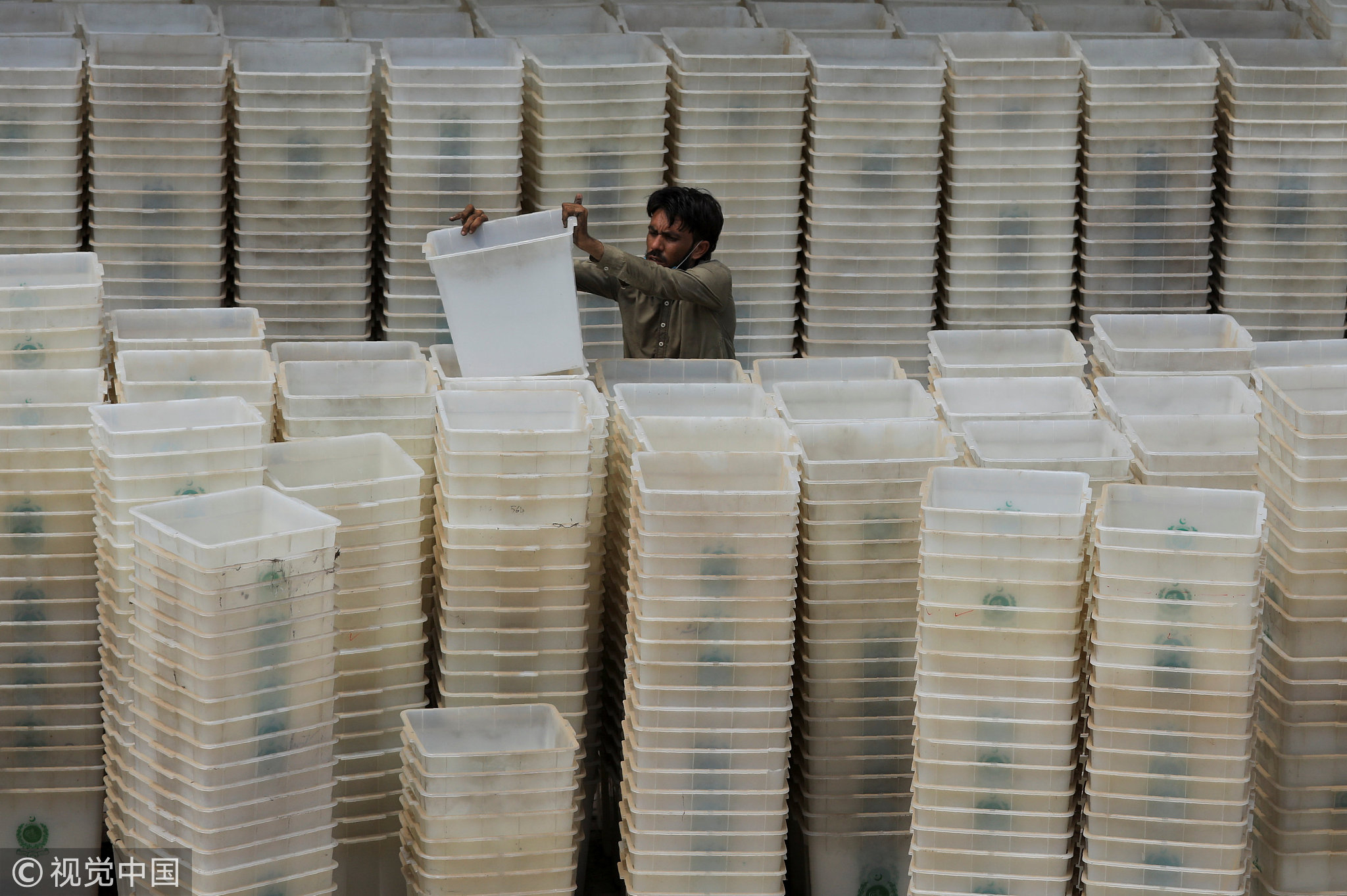
A worker sorts out ballot boxes, before dispatching them to polling stations ahead of general election, at the Election Commission office in Peshawar, Pakistan, July 22, 2018. /VCG Photo
A worker sorts out ballot boxes, before dispatching them to polling stations ahead of general election, at the Election Commission office in Peshawar, Pakistan, July 22, 2018. /VCG Photo
How does the electoral system work?
Parties are competing for 272 elected seats in the national assembly. There are also 60 seats reserved for women, and 10 for minorities, allocated on a proportional representation basis.
Parliament sits for a five-year term, and the party with a majority position of 137 seats or a coalition chooses a prime minister.
Compared to the previous election in 2013, this year features at least 15 new constituencies, created as a result of the country's boundaries shifting based on the 2017 census.
The government also developed new software and printing machines for the election, with young people getting automatically registered upon turning 18 years of age.










